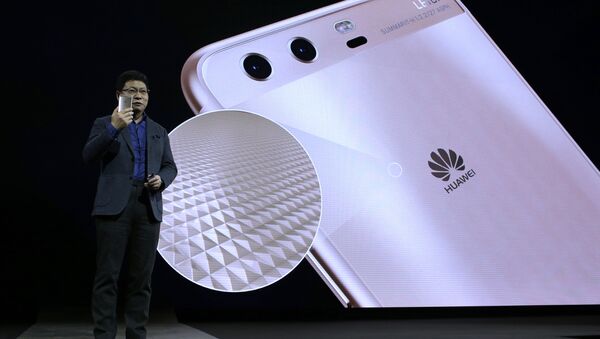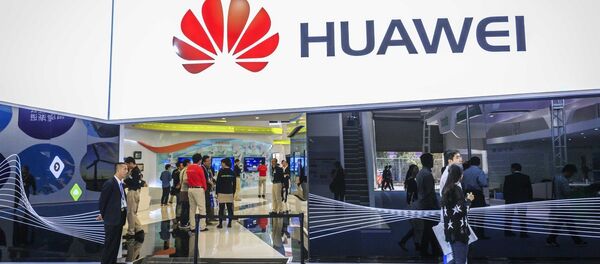Huawei has denied accusations of espionage and said in a statement that it sees no rational reason why it should be excluded from building 5G infrastructure in Germany or any other country. This comes after reports of the US investigating Huawei for "stealing trade secrets" from US businesses.
Washington has also accused the Chinese giant of violating its sanctions by lying about its business ventures in Iran.
Sputnik has discussed Germany’s move with Mark Gregory, an associate professor in Network Engineering at Australia’s RMIT University.
Mark Gregory: No, I’m not surprised by their decision. We're seeing this ripple around the Western countries quite quickly and the decisions that have been made in Berlin are the latest of many that have been made over the previous months.
Sputnik: Do you think this decision has to do with the ongoing trade battle between the United States and Europe, which has put the German car industry at risk?
Mark Gregory: I think we’re seeing a combination of a number of factors.
We've recently seen legislation introduced into China that some analysts believe has removed the distinction between government-owned and privately owned companies, and by removing that distinction, it has is set off alarm bells for security organizations in the Western countries and if you then take the next step, we have also got the telecommunication companies in the US and in Europe looking to take advantage of the situation by trying to get the cheaper products out of China banned from the market.
And of course, one of the underlying reasons that this is happening is the trade battle that we're seeing between the US and China.
China has previously positioned its currency to give it an advantage when you consider the export prices compared with the United States, but the way that it does business has been identified by the United States administration as one of the major concerns that they have dealing with China.
Sputnik: How legitimate are spying concerns in regards to the Chinese company?
Mark Gregory: I think that the key thing is that the German companies and companies in a number of other countries have asked for evidence and the evidence hasn’t been forthcoming.
There's been statements that due to the legislation in China, these companies, including Huawei and ZTE, could be forced to take actions at any time, but as far as evidence of previous acts of spying or espionage, there have been no particular points of evidence that have been made public, and this matter has been going on now for more than six months.
So we’re six months into this particular issue, it's been going for about eight years now in a number of different ways, but really brought to a head in the last six months and to date no one has produced any evidence.
Sputnik: Do similar concerns exist when it comes to 4G and other networks?
Mark Gregory: I think that at this stage the Western governments, in particular, the United States government, believe that it would be too difficult to work backwards and so really what they’re looking at is try and take action moving forward, which really is the 5G networks and 5G market.
How much of an effect this will have on the Chinese companies given that they’ve got huge market share in many other countries around the world? How much effect this would have we don’t know at this time, but what we would say is that it is the cumulative effect of everything that's happening now that may have some effect on the Chinese market.
Obviously, over the last six months there’s been a lot of concern in the Western countries with what you would say is the utilisation of stronger economy, which had hoped would mean the governments in the non-Western countries would become more liberal, become more democratic, but we're not seen this, and recently we're seeing the non-Western countries move in the other direction, and that’s one of the major concerns that’s been expressed by the US administration and a number of other countries.
Sputnik: The thing that bewilders me is that there is no evidence when it comes to the spying scandal with the United States when it was reported that NSA snooped even on Mrs Merkel, there was no response from the European states and there’s no evidence that Huawei spied on European states and now there is this response that they might ban the company. What are your thoughts on that?
And more recently we've seen that that argument has shifted again to more directly looking at the legislation in China and the argument that that legislation removes the differentiation between government-owned and private companies. So really the goalpost have been continuously moving over the last six months.
If you look at the underlying rhetoric though, is what we’re seeing is that these arguments are really part of the bigger picture which is there is concern that we’re moving very quickly into another Cold War and that technologies are going to be central to what’s going on there.
Views and opinions expressed in this article are those of Mark Gregory and do not necessarily reflect those of Sputnik.






